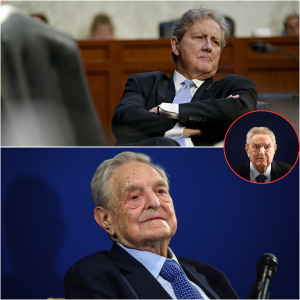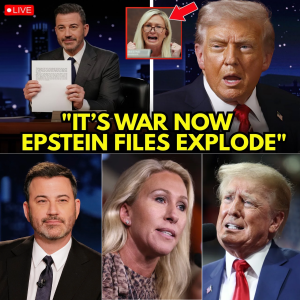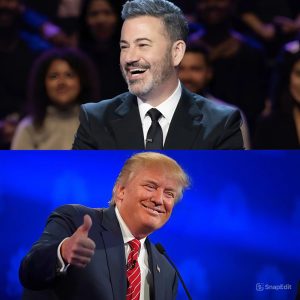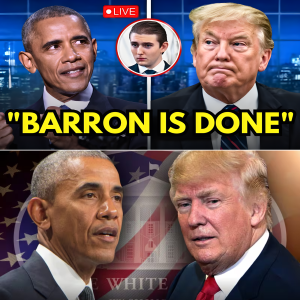Tension Rises in California as Federal Monitors Prepare to Oversee Upcoming Election — Governor Newsom Voices Concern Over State Authority and Voter Confidence Ahead of November 4th
California — The upcoming November 4th election has become the center of an escalating debate as the U.S. Department of Justice (DOJ) announces plans to deploy federal election monitors across polling sites throughout California. The decision, made in coordination with prominent civil rights attorney Harmeet Dhillon, has sparked both praise and concern, exposing a growing rift between state and federal authorities over how best to ensure fair and secure elections in one of America’s most influential states.
The DOJ insists that the move is part of a broader nationwide initiative to protect the integrity of the vote, particularly amid heightened concerns over voter eligibility, foreign interference, and disinformation. According to a statement released Monday, the monitors will be present “to ensure that every eligible citizen is able to cast a vote without intimidation, obstruction, or fraud.”
But in California — a state that has long prided itself on its independence and robust election system — the announcement landed like a political earthquake. Governor Gavin Newsom swiftly criticized the decision, calling it “an unnecessary intrusion” that undermines public trust and challenges the principle of state autonomy in managing elections.
“This is California,” Newsom told reporters at a press briefing in Sacramento. “We run secure, transparent, and inclusive elections. We don’t need Washington looking over our shoulder. Oversight should never become overreach.”
His remarks immediately drew national attention, with political analysts noting the unusually sharp tone directed toward a federal agency. While Newsom stopped short of suggesting any legal challenge, sources close to his administration confirmed that state officials are reviewing the scope of federal authority to determine whether California can limit the monitors’ access to certain polling locations.
Meanwhile, Harmeet Dhillon, the high-profile attorney involved in coordinating the initiative, defended the plan, saying that the goal is not political but protective. “This isn’t about questioning California’s competence,” Dhillon said in an interview with The Los Angeles Times. “It’s about ensuring that every American — regardless of their party — can trust the process. Voter confidence is not a partisan issue.”
Still, not everyone is convinced. Critics argue that the optics of federal monitors descending on California — a Democratic stronghold — just weeks before the election could inflame public skepticism and sow confusion among voters.
“This sends mixed messages,” said Dr. Ellen Ramirez, a political science professor at UCLA. “If you tell voters their elections are already secure, and then suddenly you send in federal monitors, they start to wonder — which is it? Are we protecting democracy, or are we implying something’s wrong?”
Others see the move as part of a growing national trend toward federal involvement in local election administration, a shift that has accelerated in recent years amid concerns over cyberattacks, disinformation campaigns, and alleged voter suppression.
California, in particular, has faced scrutiny from both ends of the political spectrum. While progressive leaders tout its broad voter participation policies — including same-day registration, mail-in ballots for all registered voters, and extended early voting — conservatives have criticized those same measures as “vulnerable to abuse.” The DOJ’s decision to monitor polling sites, therefore, lands squarely in the middle of this ideological crossfire.
The California Secretary of State’s Office, which oversees elections statewide, responded with cautious diplomacy. In a written statement, the office said it “welcomes all efforts that strengthen voter confidence and participation,” but added that “California already meets the highest standards of election transparency and security.”

Behind closed doors, however, several county election officials reportedly expressed frustration over the logistical challenges the monitors might pose. “It’s not that we’re against oversight,” said one anonymous county registrar. “But adding another layer of federal personnel at the last minute — especially when we’re already managing ballots, machines, and poll workers — can create confusion and delay.”
Civil rights groups, on the other hand, have largely welcomed the initiative, arguing that federal monitoring has historically played a vital role in protecting minority communities from discrimination and voter intimidation. The Brennan Center for Justice, a nonpartisan policy institute, noted that the DOJ’s election monitors were crucial during the civil rights era and continue to be important in ensuring fairness in marginalized areas.
“It’s not about distrust,” said Rachel Gomez, a voting rights advocate with the California Voter Foundation. “It’s about accountability. Federal monitors are there to observe, not control. In a time when misinformation runs rampant, an extra set of impartial eyes can reassure voters that their voices truly matter.”
Yet, despite these assurances, the political temperature continues to rise. On social media, partisan commentators have turned the issue into a flashpoint — with some accusing the DOJ of “federal interference” and others accusing Newsom of “resisting transparency.” The hashtag #CaliforniaElectionWatch has trended nationwide, reflecting the intensity of public interest in how the state will handle this rare federal intervention.
Election law experts warn that the tension between state sovereignty and federal oversight is not new — but it’s escalating. Since the landmark Voting Rights Act of 1965, the federal government has intermittently stepped in to monitor elections in states with histories of voter suppression. However, California has never been among them, making this announcement particularly unusual.
“California has always been seen as a model of accessibility and efficiency in voting,” said Dr. Leonard Marks, a constitutional law scholar. “So this move raises legitimate questions: Is it a precautionary measure, or is it a political message? Either way, it’s a sign that trust in the electoral system — even in stable states — is eroding.”

For voters, the impact remains uncertain. Polls show that while most Californians believe their elections are secure, a growing number express anxiety about misinformation and manipulation. A recent Berkeley IGS poll found that 63% of respondents supported “some level of federal election monitoring,” but nearly half also said they worried about “federal overreach.”
As the election nears, officials from both the DOJ and California’s state government are trying to strike a cooperative tone. Meetings are reportedly underway to coordinate how federal monitors will operate — whether they will have full access to polling sites or observe remotely through designated officials.
Governor Newsom, despite his criticism, emphasized that California “will cooperate within the law” while defending the integrity of its electoral process. “We will not allow anyone — federal or otherwise — to undermine the trust of California voters,” he said.
Ultimately, the clash unfolding in the Golden State may be a preview of a larger national reckoning: how to balance oversight with independence, security with trust, and vigilance with respect for democratic boundaries.

As one commentator on PBS NewsHour put it, “The real test isn’t whether the DOJ can monitor California’s election — it’s whether America can still believe in its own democracy without someone watching over it.”
With November 4th fast approaching, one thing is certain: all eyes are now on California, and not just those of its voters. The rest of the nation will be watching, too — wondering what this moment says about the future of American democracy itself.





